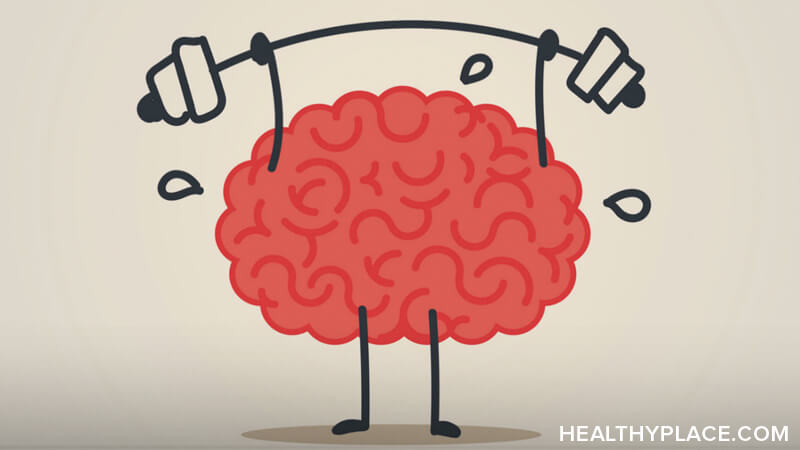What Is Mental Wellbeing? Definition and Examples

Mental wellbeing is an integral part of our overall health. Society often thinks of health as something biological and physical: the condition of our bodies, how healthy we eat, the physical exercise we do. A key component of health is missing from this, though. It’s mental wellbeing, which encompasses our inner workings and the way we describe how we are in our lives.
Mental wellbeing, in general, is the state of thriving in various areas of life, such as in relationships, at work, play, and more, despite ups and downs. It’s the knowledge that we are separate from our problems and the belief that we can handle those problems.
Before examining what mental wellbeing is, it’s important to understand what mental wellbeing is not. It is not
- The absence of mental illness
- The lack of problems, challenges, and adversity
In fact, it is often adversity, including facing mental illness, that shapes and hones mental health and wellbeing. Just as a broken bone is stronger after healing itself, so, too, can be your mental wellbeing each time you face and deal with difficulties.
So what, exactly is this idea of mental wellbeing?
Defining Mental Wellbeing
Mental wellbeing is how we respond to life’s ups and downs. In this simple mental wellbeing definition lies deeper meaning and implication for our lives. It includes how a person thinks, handles emotion (emotional wellness), and acts.
This important part of who we are has multiple meanings. These traits—which are all actually skills we can practice and develop—are all part of mental wellbeing:
- Self-acceptance
- Sense of self as part of something greater
- Sense of self as independent rather than dependent on others for identity or happiness
- Knowing and using our unique character strengths
- Accurate perception of reality, knowing that we can’t mind-read and that our thoughts aren’t always true
- Desire for continued growth
- Thriving in the face of adversity (emotional resilience)
- Having and pursuing interests
- Knowing and remaining true to values
- Maintaining emotionally healthy relationships
- Optimism (hope—the mindset that things can improve)
- Happiness that comes from within rather than being dependent on external conditions
- Determination
- Action (in contrast to a passive mindset and lifestyle, waiting for things to get better)
People who develop and experience wellbeing also have what psychological researcher, Angela Duckworth, calls grit. Grit is comprised of passions and perseverance and means showing up for life. It’s a never-give-up attitude. Grit doesn’t mean never failing, for failure is part of success and life itself. Grit means getting back up when you fall.
Together, all of this defines mental wellbeing. It’s purposely moving ever forward with determination and direction.
Examples of Mental Wellbeing
Wellbeing exists in myriad ways. These mental wellbeing examples are but a handful of ways people can be mentally healthy:
- The man who loses his job and uses his love of learning to take some classes to start a new career path that better matches his passions
- The woman who makes it a point to attend or visit concerts, plays, and museums because she feels joy and inspiration when she does
- The teen athlete who is cut from a team so, with determination and grit, trains hard to make the team next season
- The woman who once experienced a period of homelessness and now gives back by volunteering in the organizations that helped her in the past
- The man whose wife had an affair lets go of bitterness and resentment by forgiving her and divorcing her civilly and then moves on with his life
- The human being with anxiety and depression who gets out of bed every single day, creates a goal for the day, and takes small steps toward it and acknowledging the bravery and progress at the end of the day
The components of mental wellbeing are within reach of everyone, and it has nothing at all to do with the presence or absence of illness.
Someone living with a mental illness can achieve mental wellbeing; likewise, someone who has neither mental nor physical illnesses could have a poor state of mental wellbeing.
Mental wellbeing and all that it encompasses are vital life components in their own right. They’re not something that exists as solely the absence of problems. Happily, they’re also not something that occurs by luck or chance or that we either have or lack and can’t change.
Mental health and wellbeing are traits and skills that we continually develop and hone as we live a tumultuous and quality life.
APA Reference
Peterson, T.
(2021, December 26). What Is Mental Wellbeing? Definition and Examples, HealthyPlace. Retrieved
on 2025, December 25 from https://www.healthyplace.com/self-help/self-help-information/what-mental-wellbeing-definition-and-examples



